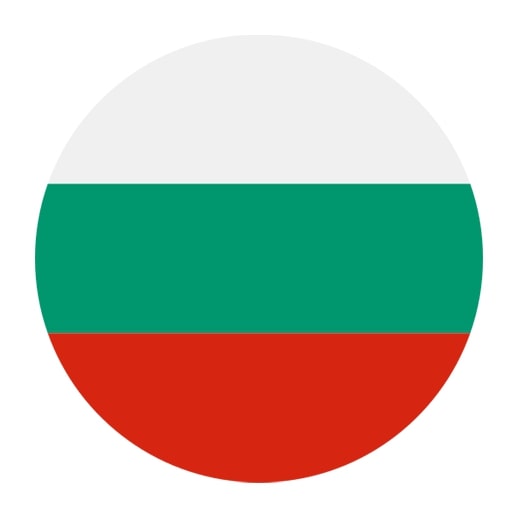Bulgarian Grammar
Explore the unique features of Bulgarian grammar and gain the tools to communicate confidently in this vibrant Slavic language. By understanding its core rules, you'll enhance your ability to connect with native speakers and delve deeper into Bulgaria's rich heritage. Begin your Bulgarian grammar journey today and take your first step towards mastering the language!
Get started
The most efficient way to learn a language
Try Talkpal for freeThe Ultimate Guide to Bulgarian Grammar: Navigating the Intricacies of a Rich Language
Bulgarian grammar, like the language itself, is a fascinating blend of simplicity, complexity, and rich cultural history. As one of the oldest Slavic languages, Bulgarian offers linguistic thrills to learners and challenges even the most proficient speakers. In this guide, we’ll explore the key principles of Bulgarian grammar, demystify its complexities, and help you on your journey to mastering this beautiful language. Let’s dive in!
The Nuts and Bolts: Bulgarian Sentence Structure
At its core, Bulgarian grammar is quite straightforward. The language follows the Subject-Verb-Object (SVO) sentence structure, similar to English and many other languages. For example, the sentence “I eat an apple” translates to “Аз ям ябълка” (Az yam yabalka). Simple, right? However, as we dig deeper, you’ll discover that Bulgarian grammar is full of surprises and unique characteristics.
Meet the Family: Bulgarian Nouns and Their Genders
One of the most perplexing aspects of Bulgarian grammar for English speakers is the notion of grammatical gender. In Bulgarian, every noun is assigned to one of three genders – masculine, feminine, and neuter. It’s essential to recognize a noun’s gender as it impacts the form of adjectives and pronouns, and the conjugation of verbs that follow.
So, how do you determine the gender of a noun? Generally, it’s all about the ending:
– Masculine nouns usually end in a consonant.
– Feminine nouns typically end in -а (-a) or -я (-ya).
– Neuter nouns often end in -о (-o) or -е (-е).
For example, “мъж” (mazh) means “man” and is masculine, “жена” (zhena) means “woman” and is feminine, and “дете” (dete) means “child” and is neuter.
Of course, there are exceptions, which is why it’s essential to learn nouns together with their genders.
Playing with Numbers: Bulgarian Plurals
Once you’ve mastered the gender of Bulgarian nouns, it’s time to deal with their plurals. In general, you form plurals by adding specific endings that correspond to the noun’s gender:
– Masculine nouns change the last consonant to -и (-i) or add -ове (-ove).
– Feminine nouns replace -а or -я with -и or -е.
– Neuter nouns replace -о or -е with -а.
For example, “ученик” (uchenik, masculine) becomes “ученици” (uchenici, students) and “книга” (kniga, feminine) becomes “книги” (knigi, books).
This rule has exceptions, so keep an eye out for irregular plurals and expand your vocabulary accordingly.
The Art of Conjugation: Bulgarian Verbs
Bulgarian verbs can be intimidating due to their sheer number of tenses, moods, and conjugations. However, the key to cracking them is recognizing patterns and practicing regularly.
In Bulgarian, verbs are divided into three groups based on their infinitive ending, -а (-a), -е (-е), or -и (-i). Each group has its specific conjugation rules. For example, let’s take the verb “пиша” (pisha, “to write”):
Present tense: Аз пиша (Az pisha, “I write”)
Past tense: Аз писах (Az pisah, “I wrote”)
Future tense: Аз ще пиша (Az shte pisha, “I will write”)
As you can see, the endings change according to the tense. And this doesn’t even scratch the surface of Bulgarian verb conjugation! However, don’t let it overwhelm you. With practice and patience, you’ll start recognizing the patterns and conquer this challenge.
The Finishing Touches: Bulgarian Adjectives, Adverbs, and More
When it comes to Bulgarian adjectives and adverbs, they play crucial roles in adding depth and complexity to your speech. Adjectives must agree with the nouns they modify in terms of gender, and you’ll usually find 3 forms – masculine, feminine, and neuter.
For example, “добър” (dobur) means “good” and appears as “добър мъж” (dobur mazh, “good man”), “добра жена” (dobra zhena, “good woman”), and “добро дете” (dobro dete, “good child”). Adverbs follow similar patterns, often derived from adjectives.
In conclusion, Bulgarian grammar’s intricacies and quirks, while complex, give the language its captivating beauty and character. With a combination of persistence, curiosity, and practical application, you’ll soon navigate Bulgarian grammar with ease and confidence. Happy learning!








